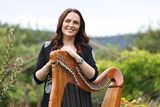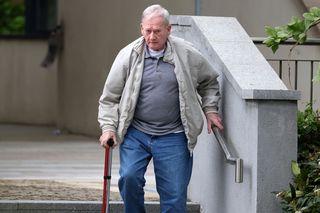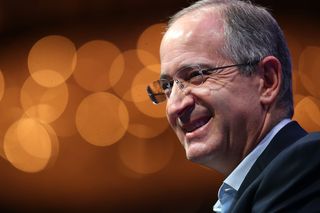Gráinne Seoige: ‘I could barely even say menopause – now I feel empowered’


Gráinne Seoige has lost her voice, almost. The day we speak, she has attended the launch of National Heritage Week and her voice is huskier than ever, almost to the point of disappearing.
She has spent the morning hosting an event and is presenting the Six O’ Clock Show on Virgin Media that evening; it is a day of talking.
It’s indicative of what a busy time it is for the Galway woman. After something of a career hiatus – Seoige and her husband Leon spent several years in South Africa – she has been back living in Galway since the pandemic and her television career seems to have ramped back up.
The last time we spoke was in October, just before her TG4 documentary about menopause, Meanapás: Meon Nua, aired.
Now, as she gets busier, her television work seems to be mostly with Virgin Media. There is a dating show to come later this year, alongside her work on the Six O’ Clock Show.
Read more
She has just finished her latest TV project for Virgin Media, a bilingual dating show she co-presents with James Kavanagh and Síomha Ní Ruairc titled Grá ar an Trá.
“It was amazing craic,” Seoige said, adding that she had previously only met James briefly.
“I suppose James would illustrate part of what we were doing; it’s a bilingual dating show. He would be that young Irish person who would have a certain amount of Irish in the back of his head, but would love to have more,” she says, explaining that the show will pair those who have Irish, with those who don’t, but wish to learn more.
She notes the difference between the launch of TG4 and now in our attitudes to the Irish language.
“After we went on air in 1996, a lot of people got a shock that young people actually did speak Irish. Back in the day Peig [Sayers] might have been the thing that people thought of – older people and a dying language,” she said.
“And I think what TnaG (now TG4) illustrated in a very visceral way is that it’s a language that is spoken by young people. Being traditional was not a barrier to also being modern.”
In the past six months, in addition to presenting the documentary on menopause, she has hosted several high-profile events on the subject.
Back in October, she told me that when she began working on the documentary, she could barely say the word menopause.
“You don’t have to be told – everybody knows that you don’t talk about it,” she said.
Henry McKean goes through the menopause
In the aftermath of the documentary airing, and the response it got, her feelings have clearly changed.
“I was – a lot of people say blown away – I really was blown away. I got thousands of messages from women saying ‘thank you’.
“Having an Irish voice illustrating the lived experience of women in this country was really important, and you can see that the tone around menopause has completely changed.
“Women feeling OK about talking about that stage in their life, that’s quite new, and it’s wonderful, because there’s a power in it. Feeling that solidarity, and knowing that you’re not alone, because I think that was the big thing that women went through in the past.”
She added: “I suppose the big message I got back [after the show] was women felt empowered. I also felt empowered. There’s a lot of energy to be found in shining a light on something that I felt had not been talked about. I’m delighted.”
She may be losing her voice today, but Gráinne Seoige has lost nothing of her power.
Join the Irish Independent WhatsApp channel
Stay up to date with all the latest news
















